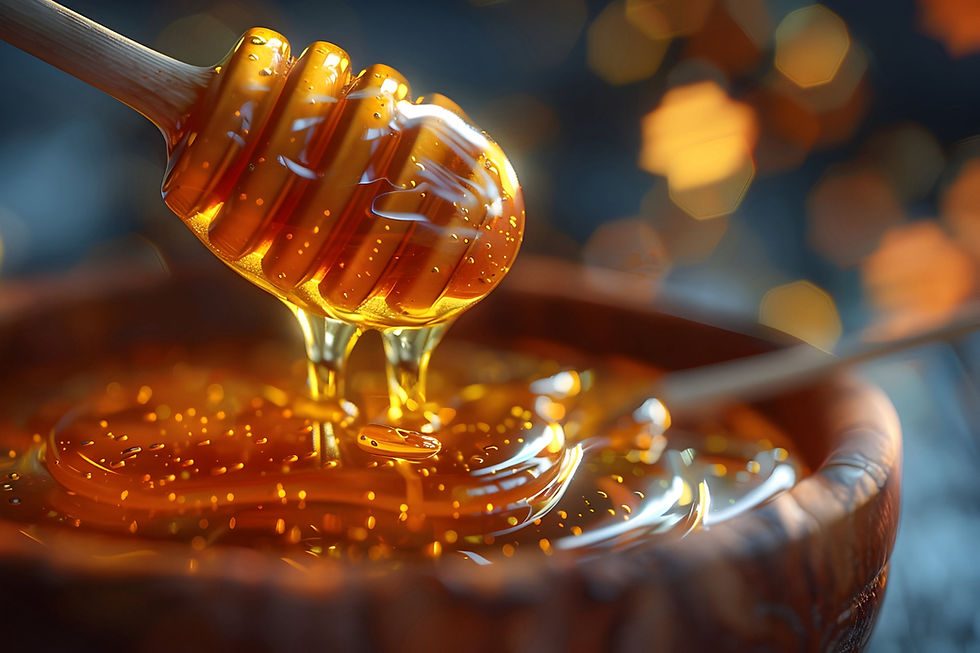Sweet but Smart: The Healthier Alternatives Every Pinoy Should Know
- Jared Salvador
- Sep 15
- 2 min read

Most Filipinos have a sweet tooth, we love our milk tea, halo-halo, kakanin, and even that extra spoon of sugar in our morning kape. But with more people becoming health-conscious, many are now looking for alternatives to refined sugar. That is where natural sweeteners come in. From honey to stevia, these options are becoming more common in Filipino kitchens. But are they really better for you? Let us take a closer look.
Honey: The Golden Classic

Honey has been around for centuries, and many Filipino households already use it as a healthier alternative to table sugar. Aside from its natural sweetness, it is rich in antioxidants and has antibacterial properties. Some even mix honey with calamansi juice as a go-to remedy for sore throats and colds.
Best for: Mixing with salabat (ginger tea), drizzling on pancakes, or sweetening taho instead of arnibal.
Stevia: Sweet Without the Calories

Stevia, made from the leaves of the stevia plant, is now found in many sugar-free products in the Philippines. It is calorie-free and much sweeter than sugar, so you only need a small amount. Since it does not raise blood sugar, it is a good option for people with diabetes, which is becoming more common among Filipinos.
Best for: Sweetening coffee or milk tea without guilt.
Coconut Sugar: Galing sa Niyog

Coconut sugar, made from the sap of coconut palms, is especially relevant in the Philippines where coconuts are abundant. It has a lower glycemic index compared to refined sugar, which means it does not spike your blood sugar as quickly. It also contains small amounts of minerals like zinc and iron.
Best for: Filipino desserts like bibingka, suman, or even your favorite adobo marinade if you like a touch of sweetness.
Should You Switch to Natural Sweeteners?
Natural sweeteners can be a healthier choice than refined white sugar, especially if you are managing your weight or blood sugar levels. However, it is still best to use them in moderation. Even the healthiest sweetener, when taken in excess, can have negative effects.
The Sweet Takeaway
Whether it is honey in your salabat, stevia in your kape, or coconut sugar in your kakanin, natural sweeteners can be a great way to enjoy sweetness with added health benefits. The key is balance—finding small, everyday changes that help you live healthier without giving up the flavors you love.
Take Charge of Your Health
At HealthFirst Clinic, we are here to guide you in making healthier lifestyle choices that fit your needs as a Filipino. If you want advice on managing sugar intake, diabetes, or nutrition in general, book a consultation with us today.
📅 Schedule your checkup at HealthFirst Clinic today.
📍 (02) 8860 9740
Sources
Harvard School of Public Health: The Nutrition Source – Sweeteners
Mayo Clinic: Artificial Sweeteners and Other Sugar Substitutes
Medical News Today: Natural Sweeteners vs. Artificial Sweeteners





Comments